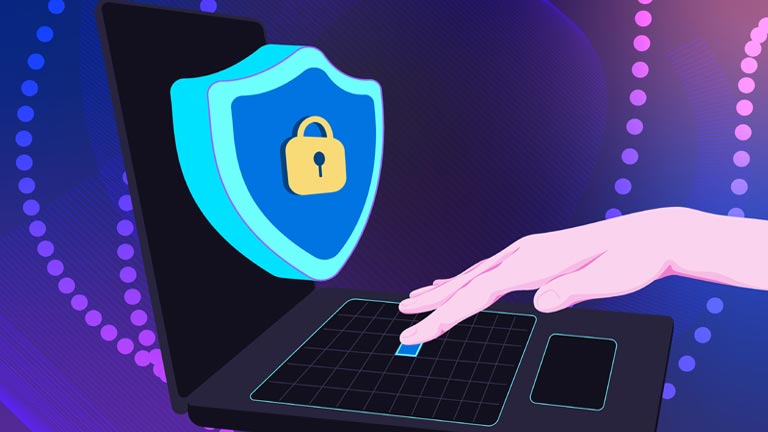
What is Cyber Security?
Cyber security refers to the collection of methodologies, tools, and procedures used to safeguard the authenticity of systems from cyber-attacks. The primary goal of cyber security is to safeguard all users from potential attacks.
Importance of Cybersecurity
The significance of cybersecurity is increasing. Essentially, our community is much more digitally dependent than it has ever been. Data breaches that potentially lead to criminal activity are now being shared openly. Names, addresses, and banking information are now saved in cloud storage such as Dropbox.
Cybersecurity for Children
Children around the world are increasingly using the internet, phones, as well as other gadgets in their daily lives. For youngsters, the computer provides a broad selection of entertaining and informative opportunities. Children’s online accounts might quickly become a focus for online hackers as they get more internet adept.
Why is Cybersecurity important for children?
According to a report by Javelin Research, over 1 million children’s identities were hacked, with 66 percent of the cases being under the age of eight. A child’s ID is more appealing to cybercriminals as it allows them to obtain additional personal information that may go unnoticed for months, damaging your child’s health and daily activities.
Furthermore, if your child engages in harmful online behavior while using your personal or office WIFI, your entire system can be affected.
Addressing teenagers about their internet presence and the need to protect their data security is important. Because as they get older and develop more of an online presence is essential to ensure that their data remains safe.
Different proxy servers or VPN providers provide services to hide your IP. Browse the internet to avoid any kind of cyberattack and protect your data. Let you select a particular region and browse the internet. It will hide your Ip and protect your data from hackers.
There should be no age restriction for understanding the fundamentals of cybersecurity. Excessive internet addiction could come at a cost. It’s critical to educate your kids on cybersecurity fundamentals today to keep them safe in the future. We’ve put together a few tips to assist you in educating your child about cybersecurity.
Cybersecurity tips you need to teach your child starting today
Internet Browsing
You should educate your children about the distinction between a secure site and one that is suspicious. That may contain dangerous threats as soon as it starts browsing. Even though they are not supposed to complete the payment online, this is a crucial practice to establish early on.
- They must also be aware of from which they can obtain particular apps under your supervision.
- A youngster must be educated on what a safe website is.
- It’s important to educate them about viruses and scam threats once they start browsing.
This is extremely hard for some people to comprehend or believe until it occurs to them. You can show a video to your child showing a virus causing damage to a computer’s screen.
Teach them about Apps and Games
To prevent a virus from spreading to the gadget, instruct your child to be cautious about free applications and games. This is also a good idea to teach your child where they can get secure and free video games.
If your child is under the age of 9, you can attach parental guidance to the gadget. So that you can monitor the kinds of applications they install.
How can it be addressed?
It can be accomplished by demanding the entry of a unique passcode at the point of every download. By using this, you are providing them with valuable training. To address the fundamental issues on whether or not to install a specific application.
If your kid downloads from an unfamiliar source, it’s a good idea to keep your equipment safeguarded. It’s recommended to install an antivirus program on your child’s gadget and maintain it.
Teach your children about Unknown Users
A child who is trolled online may not learn how to react. It can cause emotional consequences as a result. A child must understand and comprehend the idea that not everyone on the web is who they claim to be. It is suggested that children should be taught these potential attacker warning indicators.
Warning Indicators
- The chatbot asks for more personal questions
- If the game uses abusive languages
- Attempting to become friends every time you visit a particular website?
- Are you expressing things that make you feel unsettled?
Each moment a child checks in with a parent for an explanation, they must be encouraged. You should block the user once you find it suspicious.
Password Sharing
It can be difficult to teach a child the significance of not sharing the password. Because it is easy for them to share secrets and pieces of information in school. That is why, when a child is first engaged with the internet, you must educate this lesson.
Although remembering multiple logins may seem difficult. But knowing that your child has separate profiles, will secure them from cybersecurity incidents and even snoopers. You should encourage your child to maintain different passwords for different profiles.
Example
Online game usernames and passwords should be distinct from those used for social media accounts. Install a password manager so that your child doesn’t have to remember many secure and difficult passwords.
Privacy on Social Media
Cybercriminals and harassers can use social media platforms to collect personal information. But also, to abuse and blackmail people. To protect your children’s security while using social media, always tell your children to:
- Maintain the privacy of accounts.
- Users you don’t know should be blocked.
- Never share exact places, personal details, contact information, travel plans, or geotagged photos.
- Never contact or interact with users they don’t know.
- Whenever they open any suspicious messages, always advise them to come to you.
- Search for websites that begin with HTTPS rather than HTTP. The URL of a site with HTTPS is more secure.
Children may believe that they are using apps that do not expose their private messages to others. You have to dig deep. Discuss how snapshots or other techniques are used to record data.
Final thoughts
Children’s cybersecurity is not a one-time occurrence. It’s a whole life experience that starts when they point to the internet. Always keep in mind that teaching your child about cybersecurity is a never-ending task.
You and your child must be upfront and truthful about what is viewed and published. And teaching your child about cybersecurity at a younger age will be greater than any other tool he learned.




